Related Research Articles
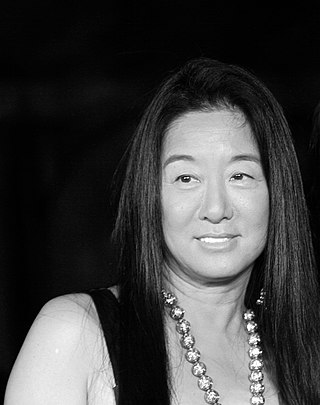
Vera Ellen Wang is an American fashion designer.
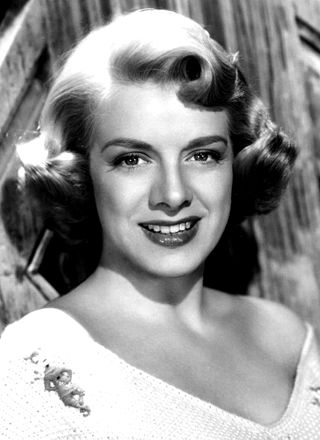
Rosemary Clooney was an American singer and actress. She came to prominence in the early 1950s with the song "Come On-a My House", which was followed by other pop numbers such as "Botch-a-Me", "Mambo Italiano", "Tenderly", "Half as Much", "Hey There", "This Ole House", and "Sway". She also had success as a jazz vocalist. Clooney's career languished in the 1960s, partly because of problems related to depression and drug addiction, but revived in 1977, when her White Christmas co-star Bing Crosby asked her to appear with him at a show marking his 50th anniversary in show business. She continued recording until her death in 2002.

Angela's Ashes: A Memoir is a 1996 memoir by the Irish-American author Frank McCourt, with various anecdotes and stories of his childhood. The book details his very early childhood in Brooklyn, New York, US but focuses primarily on his life in Limerick, Ireland. It also includes his struggles with poverty and his father's alcoholism.

Portia Lee James DeGeneres, known professionally as Portia de Rossi, is an Australian-American former actress. She played Nelle Porter on the American drama series Ally McBeal (1998–2002), for which she won a Screen Actors Guild Award, Lindsay Bluth Fünke on the American television sitcom Arrested Development, and Elizabeth North on the American political thriller series Scandal (2014–2017). She is the founder and CEO of the art company General Public.

Krapp's Last Tape is a 1958 one-act play, in English, by Samuel Beckett. With a cast of one man, it was written for Northern Irish actor Patrick Magee and first titled "Magee monologue". It was inspired by Beckett's experience of listening to Magee reading extracts from Molloy and From an Abandoned Work on the BBC Third Programme in December 1957.
Professor Frank McGuinness is an Irish writer. As well as his own plays, which include The Factory Girls, Observe the Sons of Ulster Marching Towards the Somme, Someone Who'll Watch Over Me and Dolly West's Kitchen, he is recognised for a "strong record of adapting literary classics, having translated the plays of Racine, Sophocles, Ibsen, Garcia Lorca, and Strindberg to critical acclaim". He has also published six collections of poetry, and two novels. McGuinness was Professor of Creative Writing at University College Dublin (UCD) from 2007 to 2018.

Leo Max Frank was an American factory superintendent who was convicted in 1913 of the murder of a 13-year-old employee, Mary Phagan, in Atlanta, Georgia. His trial, conviction, and appeals attracted national attention. His kidnapping from prison and lynching two years later, in response to the commutation of his death sentence, became the focus of social, regional, political, and racial concerns, particularly regarding antisemitism and racism. Today, the consensus of researchers is that Frank was wrongly convicted and Jim Conley was likely the actual murderer.

That Girl is an American TV series sitcom that ran on ABC from September 8, 1966, to March 19, 1971. It starred Marlo Thomas as the title character, Ann Marie, an aspiring actress who moves from her hometown of Brewster, New York, to try to make it big in New York City. Ann has to take a number of offbeat temp jobs to support herself in between her various auditions and bit parts. It was one of the first sitcoms to focus on an unmarried woman who was not a domestic or living with her parents, a forerunner of The Mary Tyler Moore Show.
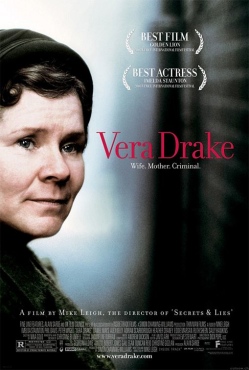
Vera Drake is a 2004 British period drama film written and directed by Mike Leigh and starring Imelda Staunton, Phil Davis, Daniel Mays and Eddie Marsan. It tells the story of a working-class woman in London in 1950 who performs illegal abortions. It won the Golden Lion at the Venice Film Festival and it was nominated for three Academy Awards and won three BAFTAs.
Old Times is a play by Harold Pinter. It was first performed by the Royal Shakespeare Company at the Aldwych Theatre in London on 1 June 1971. It starred Colin Blakely, Dorothy Tutin, and Vivien Merchant, and was directed by Peter Hall. The play was dedicated to Hall to celebrate his 40th birthday.

Rainbow Valley (1919) is the seventh book in the chronology of the Anne of Green Gables series by Lucy Maud Montgomery, although it was the fifth book published. While Anne Shirley was the main protagonist of the previous books, this novel focuses more on her six children and their interactions with the children of Anne's new neighbour, Presbyterian minister John Meredith. The work draws heavily on Montgomery's own life in the Leaskdale Manse, where she wrote a large number of books.
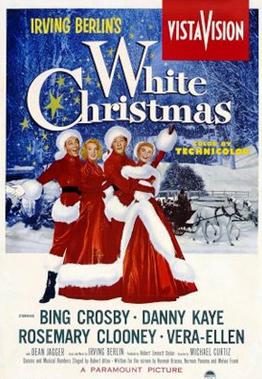
White Christmas is a 1954 American musical film directed by Michael Curtiz and starring Bing Crosby, Danny Kaye, Rosemary Clooney, and Vera-Ellen. Filmed in Technicolor, it features the songs of Irving Berlin, including a new version of the title song, "White Christmas", introduced by Crosby in the 1942 film Holiday Inn.
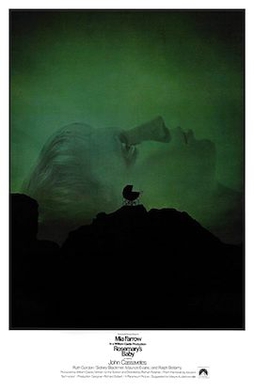
Rosemary's Baby is a 1968 American psychological horror film written and directed by Roman Polanski, based on Ira Levin's 1967 novel of the same name. The film stars Mia Farrow as a young wife living in Manhattan who comes to suspect that her elderly neighbors are members of a Satanic cult and are grooming her in order to use her baby for their rituals. The film's supporting cast includes John Cassavetes, Ruth Gordon, Sidney Blackmer, Maurice Evans, Ralph Bellamy, Patsy Kelly, Angela Dorian, and, in his feature film debut, Charles Grodin.

Francis McCourt was an Irish-American teacher and writer. He won a Pulitzer Prize for his book Angela's Ashes, a tragicomic memoir of the misery and squalor of his childhood.

Four Wives is a 1939 American drama film starring the Lane Sisters and Gale Page. The film was directed by Michael Curtiz and is based on the story "Sister Act" by Fannie Hurst. The supporting cast features Claude Rains, Jeffrey Lynn, Eddie Albert, Frank McHugh and Dick Foran. The picture is a sequel to Four Daughters (1938) and was followed by Four Mothers (1941). Four Wives was released by Warner Bros. on December 25, 1939.
Bomb Girls is a Canadian television drama that debuted on January 4, 2012, on Global and Univision Canada in Spanish. The plot profiles the stories of four women working in a Canadian munitions factory during World War II, beginning in 1941. Originally intended to be a six-part drama mini-series, two seasons have aired. The show began airing in the United States on ReelzChannel on September 11, 2012 and in the United Kingdom on ITV3 on November 10, 2012, in Ireland on TG4 on 6 January 2013 and in Poland on Fokus TV on 10 June 2014.

Chuck's Choice is a Canadian animated television series produced by DHX Media for Corus Entertainment that originally aired on YTV from May 6, 2017 to June 9, 2017. 20 episodes were produced.
Antoin McFadden is an Irish Gaelic football coach and player who has played for St Michael's and the Donegal county team. Pronounced AN-tawn, his forename is derived from the name of Roman great antiquity origin.

The Donegal county football team represents Donegal in men's Gaelic football and is governed by Donegal GAA, the county board of the Gaelic Athletic Association. The team competes in the three major annual inter-county competitions; the All-Ireland Senior Football Championship, the Ulster Senior Football Championship and the National Football League.

A captain of a Gaelic games team, sometimes known as a skipper, is a player who, during the course of a match as well as before and after it, has several additional roles and responsibilities over and above those of his teammates.
References
- ↑ Sheridan, Anne (3 May 2013). "The Factory Girls comes to Limerick stage". Limerick Leader. Retrieved 3 May 2013.
- ↑ Barr, Caoimhinn (14 February 2011). "Factory Girls return home to Buncrana". Inishowen Independent. Retrieved 14 February 2011.
- ↑ "Frank McGuinness's gritty play tells the tale of five factory workers who, under threat of redundancy, decide to stage a lock-in". The Daily Telegraph. 8 February 2013. Retrieved 8 February 2013.
- ↑ McGuinness, Frank (1996). Frank McGuinness: Plays 1. London: Faber and Faber Limited. pp. xv. ISBN 0-571-17740-9.